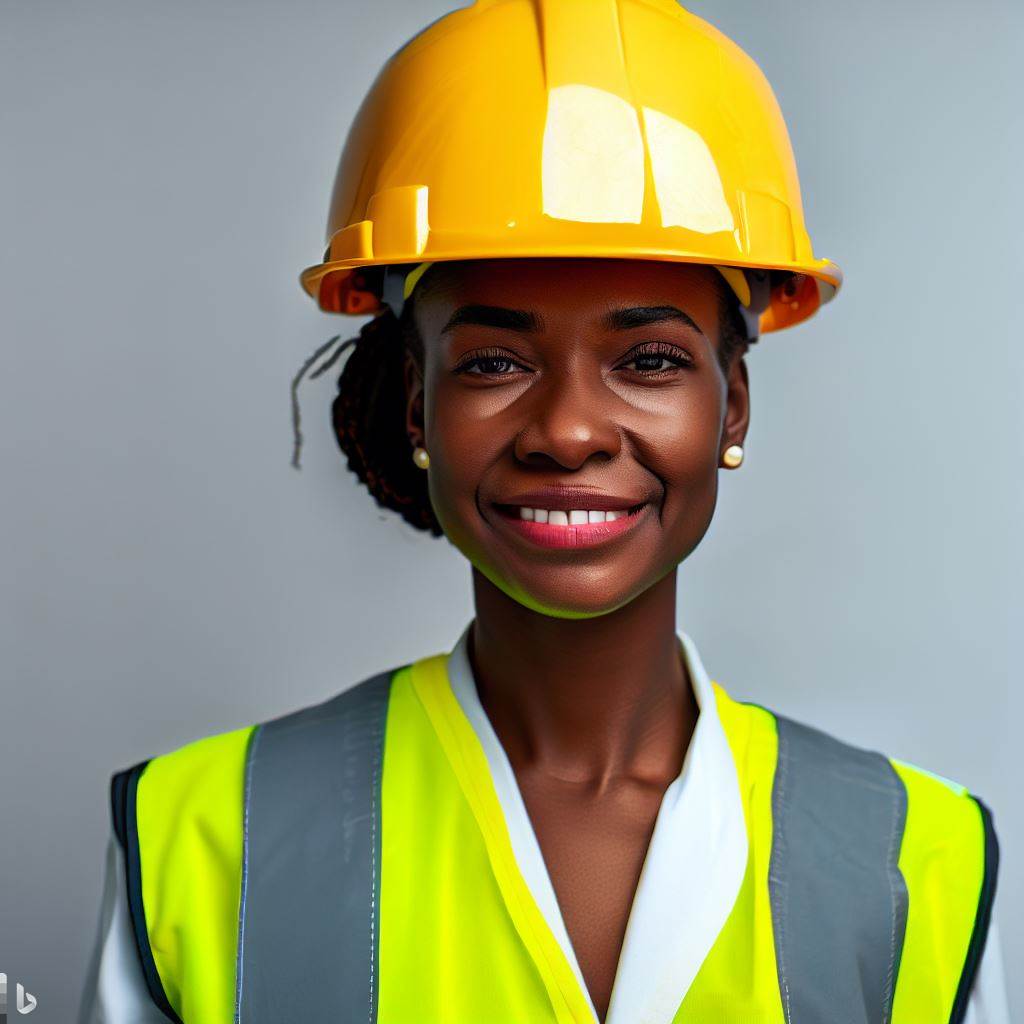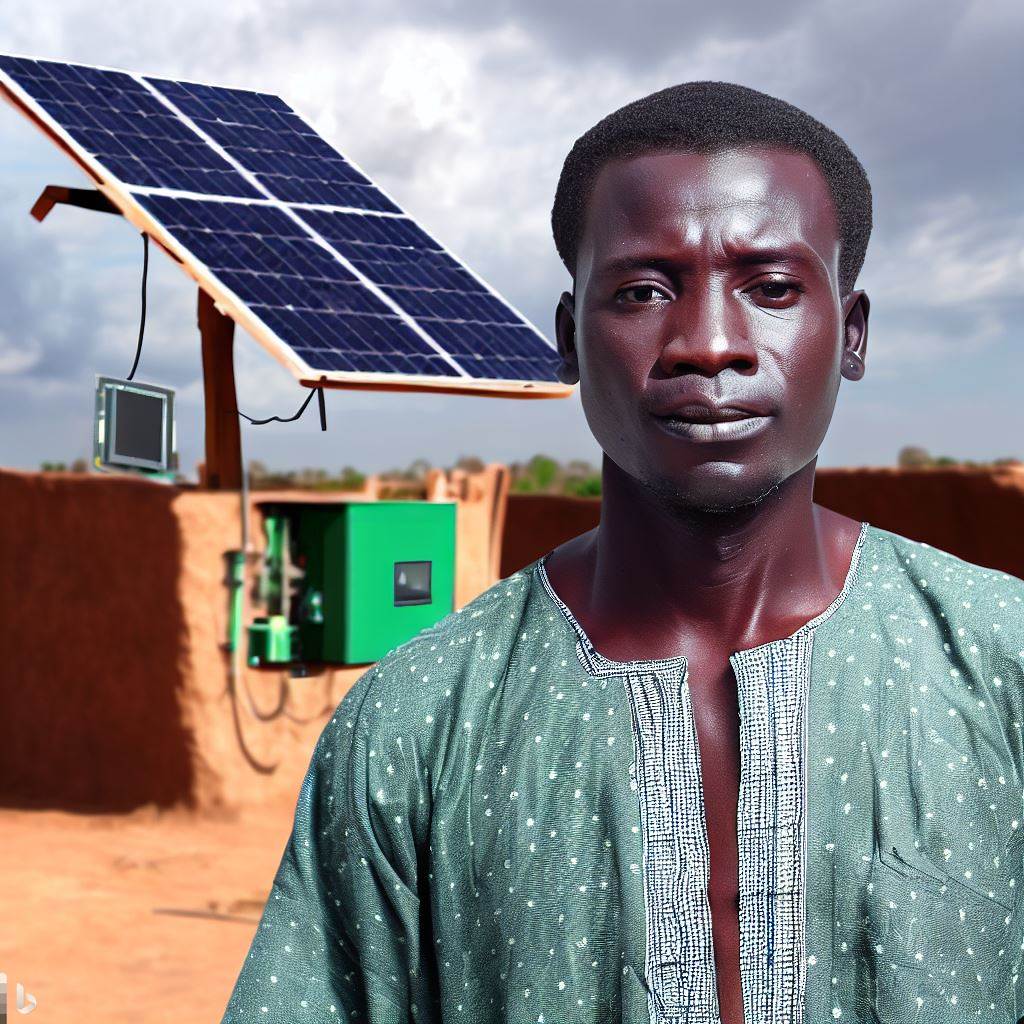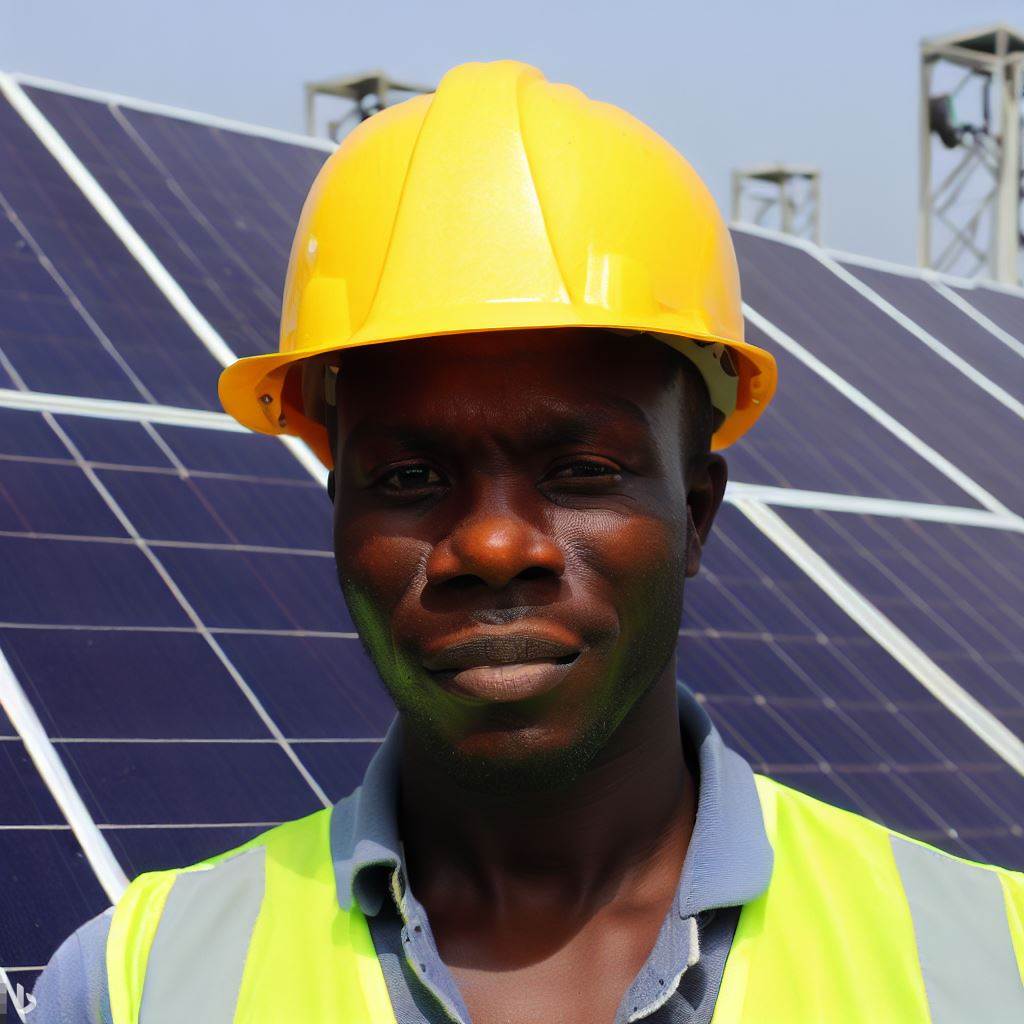Introduction
Introduction to Safety Protocols for PV Installers in Nigeria
As solar PV installations gain popularity in Nigeria, it becomes crucial to emphasize the importance of safety protocols for PV installers.
With the increasing demand for renewable energy, there is a need for skilled professionals to install and maintain solar PV systems in a safe and secure manner.
Failure to follow safety protocols can result in serious accidents, injuries, and even fatalities.
The growing popularity of solar PV installations in Nigeria can be attributed to several factors.
In fact, Nigeria has a vast potential for solar energy due to its geographical location and high solar irradiation levels.
Solar PV installations provide clean and sustainable energy, reducing the dependence on fossil fuels and contributing to the reduction of greenhouse gas emissions.
Generally, the cost of solar PV technology has significantly reduced over the years, making it a more viable and affordable option for individuals, businesses, and communities.
Safety protocols for PV installers are essential to ensure the wellbeing of both the installers and the users of the solar PV systems.
These protocols include proper equipment handling, electrical safety measures, proper installation techniques, and adherence to industry standards and guidelines.
Adhering to safety protocols minimizes the risk of accidents, electrical shocks, and fire hazards during the installation process.
It is imperative for PV installers in Nigeria to receive training and certification to ensure they have the knowledge and skills to carry out their work safely.
Regular safety assessments, inspections, and audits should also be conducted to identify and rectify any potential safety hazards.
By implementing safety protocols, Nigeria can build a robust and reliable solar PV installation sector that prioritizes the safety and protection of its workers and the general public.
Understanding the Hazards Associated with PV Installations
Installing photovoltaic (PV) systems can be an exciting and rewarding job, but it comes with its fair share of hazards.
It is essential for PV installers in Nigeria to be aware of these dangers and take the necessary safety precautions to protect themselves and others.
A. Potential Electrical Hazards and Risks
- Electric shock: PV installations involve working with high voltage electricity, which can cause severe electric shocks.
- Arc flash: During installation, there is a risk of arc flash, a release of intense heat, light, and pressure, resulting from a short circuit.
- Fire: Poor wiring, faulty equipment, or overheating can lead to electrical fires.
- Explosion: Working with batteries or inverters can lead to explosions if mishandled or incorrectly connected.
- Electrocution: Coming into contact with live wires or metal parts can result in electrocution.
B. Dangers of Working at Heights
- Falls: Working on rooftops or elevated structures puts installers at risk of falling, which can lead to severe injuries or even fatalities.
- Slips and trips: Uneven surfaces, slippery rooftops, or debris can cause installers to trip or slip, resulting in injuries.
- Falling objects: Tools, equipment, or materials dropped from heights can cause head injuries or harm people below.
- Roof collapse: Roofs may not be designed to handle the weight of PV systems, leading to potential collapses.
- Unstable ladders or scaffolds: Using unstable or faulty ladders or scaffolds can result in falls and serious injuries.
C. Risks of Working with DC Electricity
- Higher voltage: DC (direct current) electricity used in PV systems can reach higher voltage levels than AC (alternating current) electricity.
- Arcing: DC arcs can be sustained longer than AC arcs, posing a greater risk of burns and fires.
- Isolation: Unlike AC electricity, DC systems do not rely on natural current drop to protect against electric shock.
- Multiple arcs: PV modules with shaded areas can produce multiple arcs, increasing the risk of fires and injuries.
- Maintenance concerns: Disconnecting or working on DC circuits requires specialized knowledge and training.
Installers should always prioritize safety by following these essential steps:
- Undergo proper training to understand the hazards and risks associated with PV installations.
- Wear appropriate personal protective equipment (PPE), including gloves, goggles, and flame-resistant clothing.
- Use insulated tools and equipment to minimize the risk of electric shock.
- Implement lockout/tagout procedures to isolate electrical systems during installation or maintenance.
- Secure work areas to prevent unauthorized access and protect against falling objects.
- Frequently inspect ladders, scaffolds, and other climbing equipment for stability and safety.
- Adhere to all manufacturer guidelines and specifications for PV system components.
- Regularly assess and mitigate potential electrical hazards and risks on the job site.
- Keep updated on the latest safety regulations and best practices for PV installations.
By understanding the hazards associated with PV installations and taking appropriate safety measures, installers can significantly reduce the risk of accidents and injuries, ensuring a safer working environment for themselves and their colleagues.
Read: Safety First: Responsible Bartending in Nigeria
Importance of Safety Protocols for PV Installers
When it comes to installing solar power systems, safety protocols play a crucial role in ensuring the well-being of PV installers.
These protocols are not just arbitrary guidelines but have a significant impact on the entire installation process.
Adhering to safety procedures is of utmost importance for several reasons:
A. Ensuring Installer’s Well-being
- Following safety protocols safeguards the installer from potential accidents and injuries.
- Using protective gear such as helmets, gloves, and goggles minimizes the risk of harm.
- Proper training on safety procedures equips installers to handle potential hazards effectively.
B. Preventing Accidents and Injuries
- Strictly adhering to safety protocols reduces the likelihood of accidents during installation.
- Accidents can lead to severe injuries, such as electric shocks or falls from heights.
- By following safety procedures, installers can minimize the chances of accidents occurring.
C. Maintaining High Quality and Reliability
- Not following safety protocols can have negative impacts on the overall quality and reliability of the solar power system.
- Ignoring safety procedures may result in improper installation or faulty connections.
- Such errors can compromise the performance and effectiveness of the PV system.
D. Ensuring Long-Term Durability
- Adhering to safety protocols during installation ensures the longevity and durability of the solar power system.
- Using proper techniques and precautions prevents any potential damage to the system.
- This ensures the system can withstand harsh weather conditions and continue to function efficiently.
E. Complying with Industry Standards and Regulations
- Safety protocols are in place to ensure compliance with industry standards and regulations.
- Following these protocols demonstrates professionalism and adherence to legal requirements.
- Non-compliance may result in legal consequences and damage to the installer’s reputation.
F. Promoting Customer Satisfaction
- Installing solar power systems with strict adherence to safety protocols creates a positive customer experience.
- Clients appreciate the professionalism and care taken by the installers during the installation process.
- Customer satisfaction leads to positive reviews, referrals, and potential future business opportunities.
In short, safety protocols are of utmost importance for PV installers in Nigeria.
Adhering to these protocols ensures the well-being of the installers, prevents accidents and injuries, maintains high-quality installations, ensures long-term durability, complies with industry standards, and promotes customer satisfaction.
By prioritizing safety, PV installers can create a safer working environment while delivering reliable solar power systems to their clients.
Read: Local Ingredients: Unique Nigerian Bartending Flavors

The Role of Personal Protective Equipment (PPE)
Personal Protective Equipment (PPE) plays a crucial role in ensuring the safety of PV installers in Nigeria.
PV installation involves potential hazards, and wearing appropriate PPE is essential to mitigate risks and protect the installers.
A. Types of PPE Required for PV Installers
- Helmets: Protective headgear is necessary to prevent head injuries from falling objects or accidental head impacts.
- Safety glasses: Installers must wear safety glasses to shield their eyes from dust, debris, and potential eye hazards.
- Gloves: Insulated gloves are essential for PV installers to protect their hands from electrical shocks and injuries.
- Protective clothing: Wearing appropriate clothing, such as coveralls, helps protect against cuts, burns, and exposure to harmful substances.
- Ear protection: In cases where loud machinery or equipment is involved, hearing protection must be used to prevent hearing damage.
B. Importance of Wearing Appropriate PPE
Wearing appropriate PPE is crucial to ensure the safety and well-being of PV installers. It helps protect them from potential hazards and reduces the risk of injuries or accidents on the job.
PV installation sites often involve working at heights, handling heavy equipment, and exposure to electrical components.
Without proper PPE, installers may be susceptible to injuries like head trauma, eye injuries, electrical shocks, burns, or cuts.
C. Guidelines for Selecting and Using PPE
Effective selection and use of PPE are essential to maximize its protective benefits.
Here are some guidelines:
- Assess hazards: Identify potential hazards in the PV installation site to determine the appropriate PPE required.
- Choose certified products: Ensure that the PPE selected meets relevant safety standards to ensure its effectiveness.
- Proper fit: Select PPE that fits well, allowing for freedom of movement without compromising protection.
- Regular inspection: Inspect PPE regularly for any signs of wear, damage, or deterioration, and replace if necessary.
- Training: Provide comprehensive training on how to properly wear, adjust, and use PPE to all PV installers.
- Storage and maintenance: Store PPE in a clean and dry area to prevent damage. Clean and maintain PPE regularly as per manufacturer instructions.
- Regular updates: Stay updated with new developments in PPE technology and ensure that the equipment remains up to date.
By adhering to these guidelines, PV installers can ensure that they are properly protected and can confidently perform their tasks without jeopardizing their safety.
In review, the role of Personal Protective Equipment (PPE) is paramount in ensuring the safety of PV installers in Nigeria.
The types of PPE required, such as helmets, safety glasses, and gloves, protect against potential hazards. Wearing appropriate PPE mitigates risks and reduces the likelihood of injuries.
By following guidelines for effective PPE selection and use, PV installers can work safely and confidently on solar installation projects.
Read: From Beginner to Pro: Bartending Tips in Nigeria
Electrical Safety Guidelines
When it comes to PV installations in Nigeria, electrical safety guidelines cannot be overlooked.
Ensuring the safety of PV installers is of utmost importance to prevent accidents and injuries.
A. The need for proper grounding and earthing systems during PV installations
One crucial aspect of safety protocols is proper grounding and earthing systems.
Grounding helps to protect both the installer and the PV system from electrical faults and lightning strikes.
It provides a path for current to flow safely to the ground, preventing electrical shock.
B. Importance of using appropriate tools and equipment for electrical connections
Another aspect to consider is the necessity of using appropriate tools and equipment for electrical connections.
Faulty or incorrect tools can lead to dangerous situations, such as short circuits or electric arcs.
Installers must be equipped with insulated gloves, safety glasses, and insulated tools to minimize the risk of electrical accidents.
C. The necessity of disconnecting and isolating PV systems before performing any maintenance or repairs
The importance of disconnecting and isolating PV systems before performing any maintenance or repairs cannot be stressed enough.
These systems generate electricity, and accidental contact with live wires can result in severe shocks.
Isolating the system ensures that no power is flowing through the circuits, making it safe to work on them.
Ensuring the safety of PV installers also involves following strict safety protocols.
Before starting any installation, they must fully understand the system design and operation.
This includes identifying all potential hazards, understanding the voltage and current ratings, and knowing the proper procedures for installation.
In addition to safety protocols, ongoing training and education are essential. PV installers should be regularly updated on the latest safety standards and best practices.
They need to be aware of any changes in regulations or guidelines that may affect their work.
Continuous learning helps to ensure that installers are knowledgeable and competent in their profession.
Regular inspections and maintenance of PV systems are also crucial for safety.
Inspecting the installation periodically helps identify any potential issues or damage that could lead to accidents.
Maintenance should be performed by qualified professionals to avoid any risks associated with working on the electrical components of the system.
Most importantly, safety protocols should be strictly followed during PV installations in Nigeria.
Proper grounding and earthing systems, as well as the use of appropriate tools and equipment, are vital for the wellbeing of installers.
Disconnecting and isolating PV systems before maintenance or repairs, along with continuous training and education, play a significant role in ensuring the safety of installers.
Regular inspections and maintenance further contribute to a safe working environment for all involved.
Read: Networking Tips for Bartenders Working in Nigeria
Working at Heights Safety Measures
When working at heights, it is crucial for PV installers in Nigeria to follow safety protocols to ensure their well-being and prevent accidents.
This blog section will discuss the need for secure ladders, scaffolding, or safety harnesses, how to assess the stability and safety of the installation site, and provide guidelines on preventing falls.
A. Secure Ladders, Scaffolding, and Safety Harnesses
Working at heights requires proper equipment to ensure the safety of PV installers.
One of the key safety measures is the use of secure ladders, scaffolding, or safety harnesses.
These are essential tools that provide stability and support when working on elevated platforms.
A ladder must be in good condition, with no loose or damaged parts. It should also be the appropriate height for the task at hand.
When using a ladder, it is essential to maintain three points of contact at all times and never overreach. This will minimize the risk of falling and ensure stability.
Scaffolding is another common tool used when working at heights.
PV installers must ensure that scaffolding is properly erected, stable, and able to support the weight of both the equipment and the installer.
Regular inspections should be conducted to check for any defects or damages.
When working on heights, safety harnesses are often used as an additional protection measure.
Installers must securely attach their harnesses to an anchor point that can bear their weight in case of a fall.
Safety harnesses must be correctly fitted, and all straps and buckles should be properly secured.
B. Assessing Stability and Safety of the Installation Site
Before beginning work at heights, it is crucial to assess the stability and safety of the installation site.
This assessment helps identify potential hazards and allows installers to take appropriate precautions.
PV installers should check the condition of the ground or platform where they will be working.
It should be stable, free from debris or slippery substances. Any potential hazards should be addressed before starting the installation process.
If scaffolding is required, the ground underneath should be level and free from obstacles.
The scaffoldings must be positioned on a solid surface and properly secured to prevent any movements or collapse. This will ensure a safe working environment.
C. Preventing Falls with Guardrails and Proper Footing
Falls are common accidents when working at heights, but they can be prevented by implementing certain safety measures.
One effective way to prevent falls is through the use of guardrails. Installers should ensure that guardrails are properly installed and securely attached to the working platform.
Guardrails act as physical barriers that prevent accidental falls and provide additional support to workers.
Proper footing is another crucial aspect of preventing falls. PV installers should always wear appropriate footwear that provides good traction and grip.
Shoes with non-slip soles are recommended for working at heights. Taking proactive measures, such as removing any materials or tools that may cause slips, will also help prevent accidents.
In essence, working at heights as a PV installer in Nigeria requires strict adherence to safety protocols.
This includes using secure ladders, scaffolding, or safety harnesses, assessing the stability and safety of the installation site, and preventing falls with the use of guardrails and proper footing.
By following these safety measures, PV installers can ensure their own well-being and create a safer working environment.
Fire Safety Precautions
When it comes to PV installations in Nigeria, there are potential fire hazards that need to be addressed.
It is crucial for PV installers to follow strict safety protocols to avoid any accidents and ensure the overall safety of the installation site.
A. Potential Fire Hazards Associated with PV Installations
- Faulty wiring or improper electrical connections
- Overheating of the PV panels or related equipment
- Short circuits or electrical sparks
All of these factors can lead to fires if not properly addressed during the installation process.
B. Importance of Fire Extinguishers and Their Proper Placement
- Fire extinguishers are essential safety equipment that every PV installation site in Nigeria should have.
- They are specifically designed to combat fires caused by electrical equipment and are critical in preventing fire-related accidents.
- The proper placement of fire extinguishers near the installation site is crucial for easy accessibility and quick response in case of an emergency.
C. Steps to Take in Case of a Fire Emergency During or After Installation
- Stay calm and alert in case of a fire emergency during the PV installation process.
- Evacuate the area immediately, following the predefined evacuation plan.
- Alert others on the site about the fire, ensuring their safety as well.
- If safe to do so, use the nearest fire extinguisher to suppress the fire before it spreads.
- Contact the local fire department and provide them with accurate information about the fire incident.
- Never attempt to combat the fire alone if it becomes uncontrollable. Personal safety should be the top priority.
- Once the fire is extinguished or under control, assess the damages and take necessary measures to prevent future incidents.
- Investigate the cause of the fire and rectify any issues to avoid similar accidents in the future.
- Regularly inspect and maintain fire extinguishers to ensure their functionality when needed.
By following these fire safety precautions and taking necessary steps in case of a fire emergency, PV installers in Nigeria can ensure the safety of themselves, their team, and the overall installation site.
Training and Certification
Training and certification are crucial for PV installers in Nigeria to ensure safety protocols are followed.
Receiving proper training and certification as a PV installer holds significant importance in Nigeria.
Formal education and practical training in safety protocols offer several advantages to PV installers.
- Enhanced knowledge and understanding of safety measures
- Improved skills in handling PV equipment and installations
- Ability to identify and mitigate potential hazards
- Compliance with national and international safety standards
- Increased job opportunities and credibility in the industry
Several reputable institutions and organizations in Nigeria offer PV installer training and certification.
- Nigerian Institute of Solar Energy (NISE): NISE provides comprehensive training programs for PV installers.
- Renewable Energy Skill-up Initiative (RESI): RESI offers specialized courses on PV installation and safety protocols.
- Solar Energy Society of Nigeria (SESN): SESN conducts training workshops and provides certifications for PV installers.
These institutions ensure that PV installers receive the necessary knowledge and skills to execute their jobs safely.
Training programs usually cover topics such as:
- PV system design and installation
- Electrical and wiring practices
- PV component selection and integration
- Safety procedures and best practices
- System maintenance and troubleshooting
Certification programs assess the competence of PV installers through examinations and practical demonstrations.
By obtaining certifications, PV installers showcase their commitment to safety and professionalism in the field.
In addition to formal education and certification, PV installers should stay updated with industry advancements.
Participating in seminars, workshops, and conferences enhances their knowledge of new safety protocols and technologies.
Continual improvement is essential for PV installers to adapt to changing industry standards and emerging challenges.
In a nutshell proper training and certification for PV installers in Nigeria play a vital role in ensuring safety protocols.
These measures not only protect the installers but also contribute to the growth and trustworthiness of the solar industry.
Conclusion
Safety protocols for PV installers in Nigeria are of utmost importance. These protocols are not just guidelines but essential for ensuring a successful and secure PV installation.
By adhering to safety protocols, PV installers can protect themselves, their team, and the environment from potential hazards and accidents.
This not only safeguards their well-being but also enhances the overall efficiency and quality of their work.
It is crucial for all PV installers in Nigeria to prioritize safety by strictly following the established protocols.
Failure to do so can result in grave consequences, including injuries, damage to the equipment, and even fatalities.
Therefore, let us all commit to safety and make it a priority in our daily work routine. By doing so, we can ensure a safer environment for ourselves, our colleagues, and our clients.
To achieve this, PV installers should regularly update their knowledge on safety practices, stay informed about the latest regulations, and invest in the necessary safety equipment.
Basically, PV installation companies should prioritize safety training and ensure that all employees are well-educated and aware of the protocols.
When all is said and done, safety should be at the forefront of every PV installer’s mind.
Let us work together to create a culture of safety, where we not only meet the installation goals but also prioritize the well-being of everyone involved.
Only then can we truly achieve successful and secure PV installations in Nigeria.




